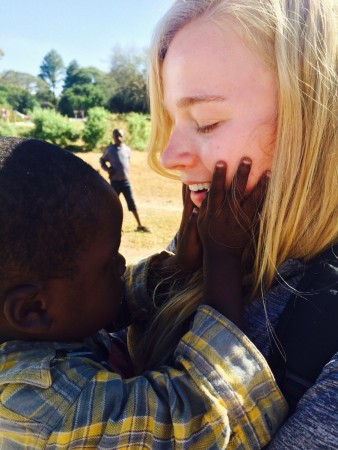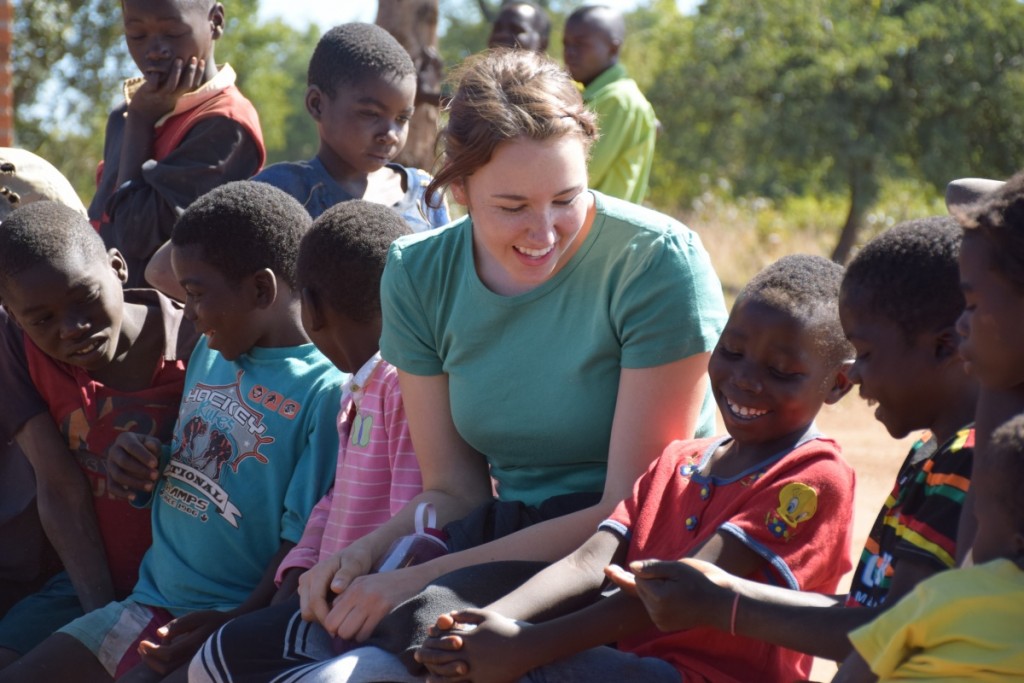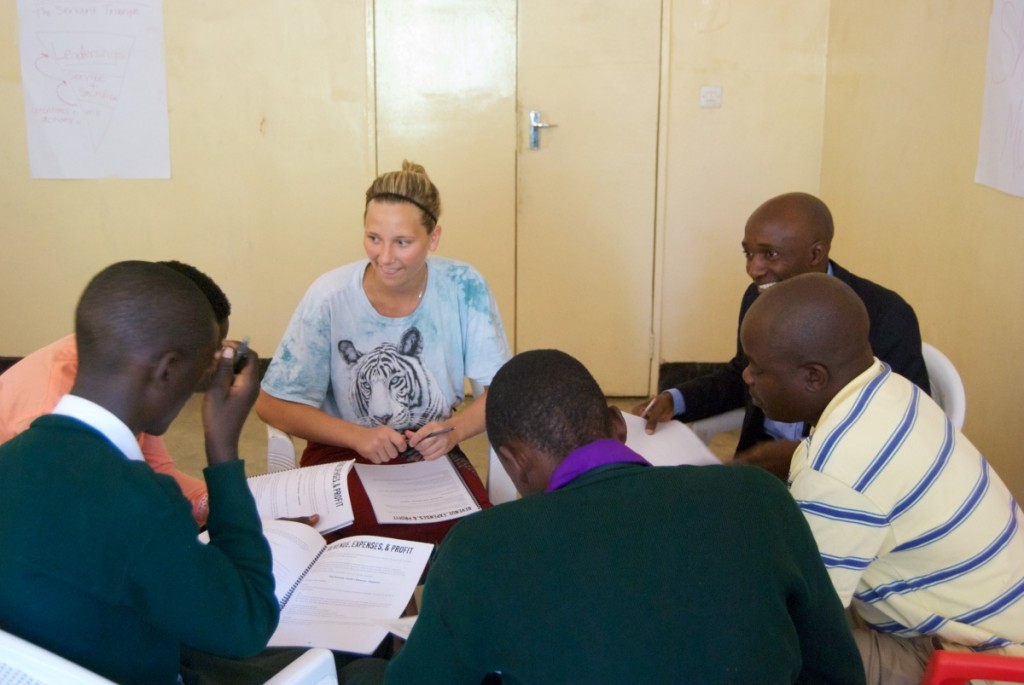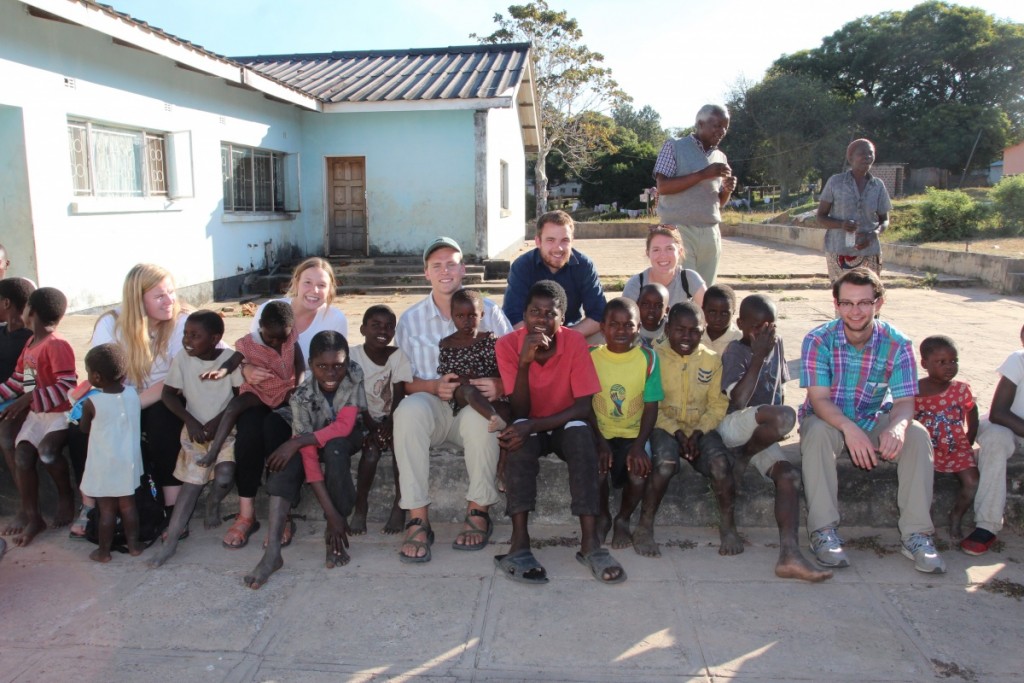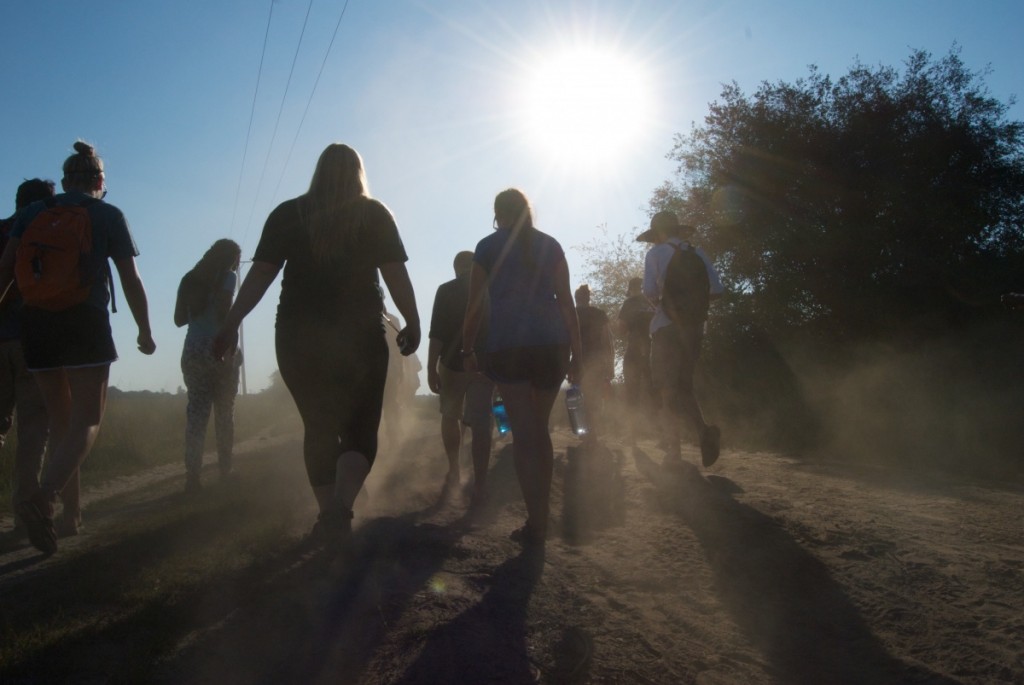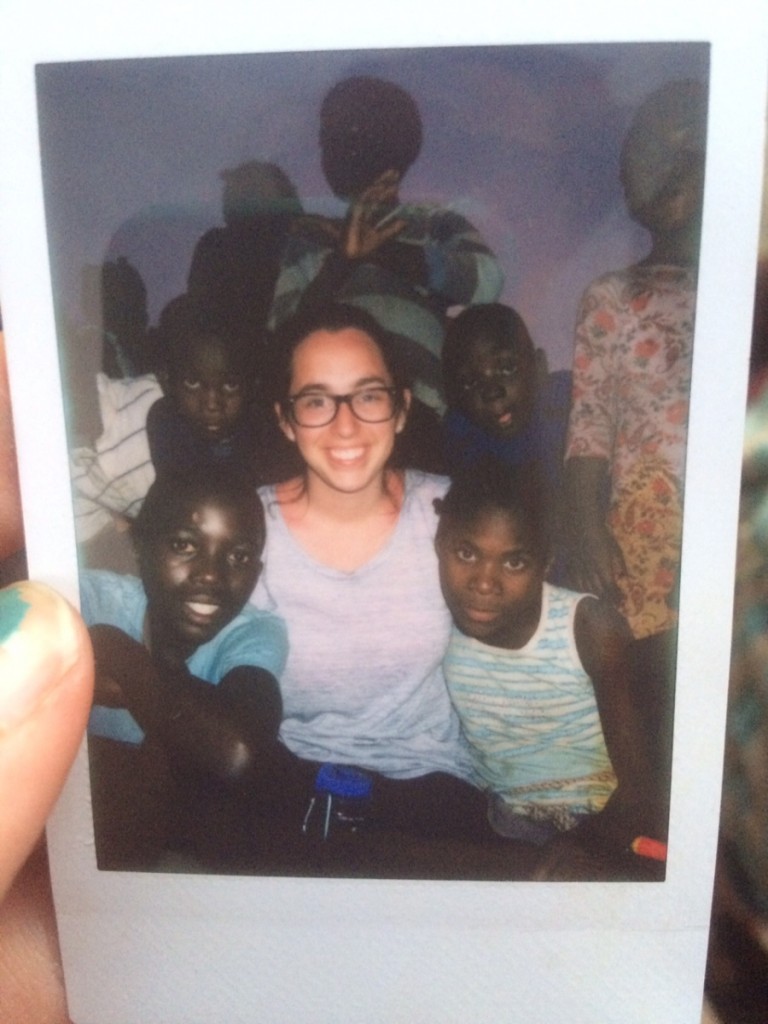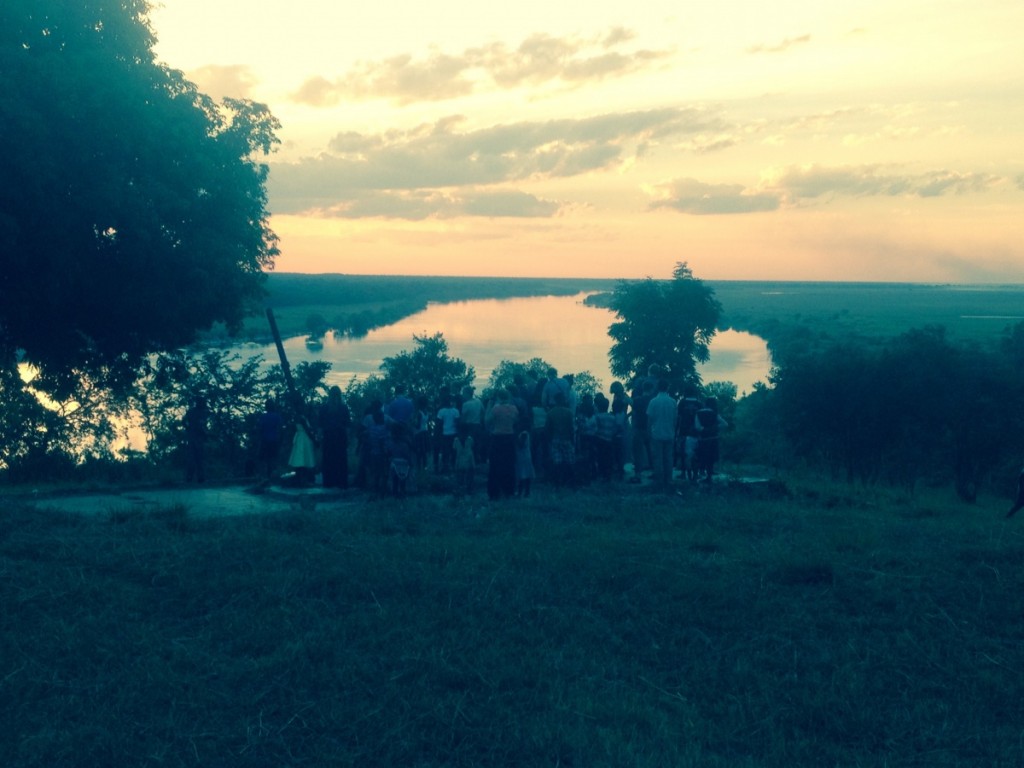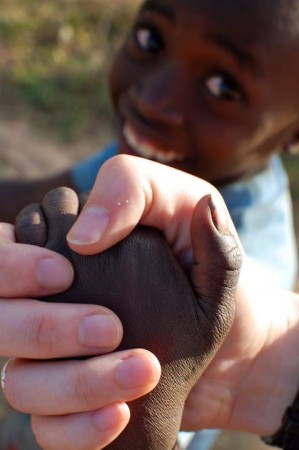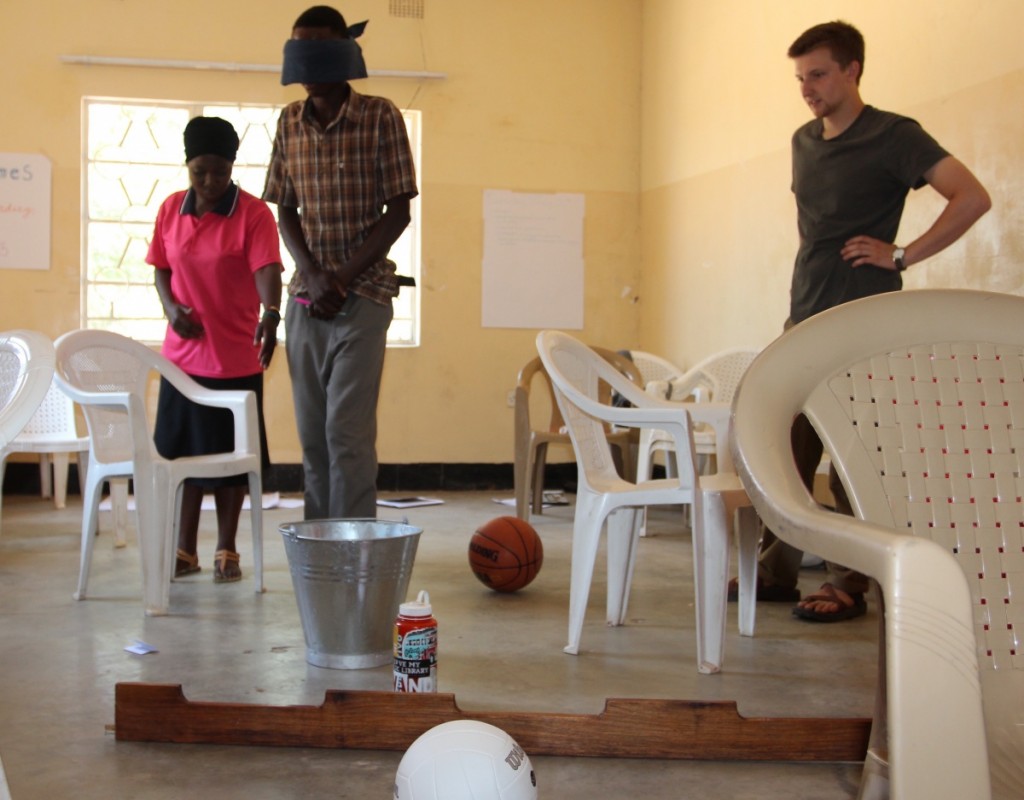 After spending part of last summer in Zambia, I knew that I wanted to come back because being here gives me a better understanding of who I am and where I have come from.
After spending part of last summer in Zambia, I knew that I wanted to come back because being here gives me a better understanding of who I am and where I have come from.
Today in class, I taught adaptive leadership, and specifically the idea of “getting on the balcony.” As I was discussing this, many of the students looked confused, so my fellow teachers and I asked if they understood the concept of balcony? Many of the students stared blankly back at me, so we decided that getting on the roof was a better understood expression. As I reflected more on this class and the ideas that I taught, I realized that many of the things that we are doing here in Zambezi require us to get on the “roof,” and observe our experiences from a broader perspective. By getting on the “roof,” it gives us students a chance to not only analyze the Zambian culture, but also American culture. Furthermore, being in Zambia gives Zambians the chance to analyze not only our American culture, but also their own Zambian culture. We are able to analyze and critique both cultures, which leads to a greater understanding of ourselves and the people we are our spending time with.
In our leadership in business classes there is a final business proposal, where students find a need within their community and propose a solution to this. For example, many of them have proposed Internet cafés, and this is a really great idea if we look at it from our western perspective where the Internet is one of the most important tools for communication. But when we take a “roof” perspective and reflect on this, we can see how our American culture values communication in a different way than Zambian culture values communication. Internet cafés would drastically change the communication here in Zambia. Currently, people in Zambezi are very good at communicating face to face; in the U.S., even at Gonzaga, I have had many professors who say that one of the biggest problems we are facing is that we have lost our face-to-face communication skills.
We can see this in our Zambian leadership classes. For example, when we taught servant leadership we did the “floating stick” activity, where you have to work as a team to lower a broomstick to the ground. Those of you who have done this activity know that it is surprisingly difficult and requires very clear and concise communication. When the students in our class did this, they communicated well with one another and lowered the stick with ease. I have been parts of groups that took as long as 15 minutes to lower the stick. America’s lack of communication is something that we rarely notice, but being in Zambia gives us another perspective, where we can more accurately analyze our culture.
By interacting with Zambians, we are also able to give them a more accurate perception of our culture. I think of reflection last night, when we did an activity where we said, “My roots are” and listed, smells, sounds, sights, ancestors, foods, and phrases that define who we are. Father Dominic and Mama Kawatu, our cultural guides here in Zambia, and Robinson, one of Josh’s friends from Zambezi, were also in the room when we did this activity. They participated and we learned a few things about what they value as a culture, and also gave them insight into our culture. Some of the common themes that we identified within many of our responses were that we enjoy the smell of fresh cut grass and that many of our parents have told us life isn’t fair. These two things say a lot about our American culture.
I think that Zambians often forget that parts of American culture are not easy, and I have had multiple experiences where I felt Zambians glorify Americans and their culture. These experiences allow me to get on the balcony and analyze why Zambians believe that America is in some way better. My conversation with Julius is a good example of this. Julius told me of his perspective of both what it means to be American and what it means to be a Zambian. Julius said they need “more people” in Zambia because more people equals more infrastructure, and more infrastructure is “good.” Is more infrastructure really good? Our experience in the US might suggest otherwise: we seem to be building even when we don’t have resources and not using well the things that we already have.
Later, Julius also said that Zambians need to become more civilized, which made me question if America is really “civil?” What is civil anyways and why is Zambia in his mind, not civil? In particular, I think of the justice system in the United States and the great injustices that are present within this system. In Zambezi, the prisoners are allowed to go out of the jail during the day and work, interact, and communicate with the community. This seems pretty civil to me because prisoners continue to have opportunities to provide for their families, unlike the prisoners in the United States.
While these examples only scratch the surface, getting on the roof helps us develop a more complex understanding of both Zambian and American culture, and a love for the positives of both.
Joel Hanson, Class of 2017

